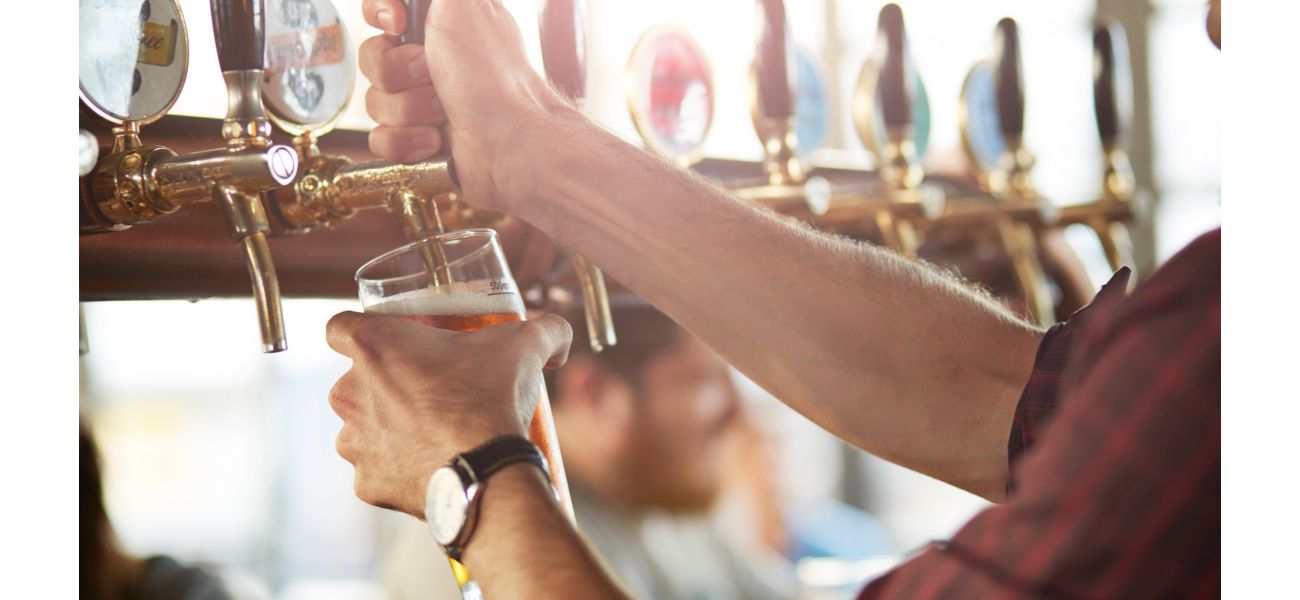UK beer diluted to save 23p/can on alcohol tax.
Breweries have reduced beer strength to save money.
October 21st 2024.

It has been announced that Grolsch, a popular lager from a major UK brewery, will be reducing its strength in order to save money on alcohol tax. The brewery, Asahi UK, has decided to lower the alcohol content from 4% ABV to 3.4% ABV for their Grolsch Premium Pilsner in the UK. This change is expected to save them about 23p in excise duty for every 440ml can sold. Apparently, sales of the Dutch beer have not met expectations, leading to this decision.
Interestingly, Grolsch used to be sold in the UK at a higher strength of 5% ABV, which was consistent with other European countries. However, when it was relaunched in 2020, the strength was reduced to 4% ABV. According to an Asahi spokesperson, this recent reformulation was a result of careful analysis and they are confident that it still delivers an excellent premium beer that will appeal to a wide range of consumers.
Unfortunately, this news may not be welcomed by beer drinkers, as it seems to be a trend among brewers to lower the alcohol content just before new alcohol duties come into effect. In fact, the University of Sheffield's alcohol research group estimates that reducing the alcohol percentage by just 0.35% could save breweries a whopping £250 million in tax. This practice, known as 'drinkflation', has been observed across various grocery products in recent months.
Aside from Grolsch, other popular beers like Spitfire, Old Speckled Hen, Foster's, and Bishops Finger have also reportedly reduced their alcohol content. However, some brands like Heineken, Amstel, John Smith's, and Newcastle Brown Ale have not confirmed if they will also be making the change. This 'shrinkflation' trend, where manufacturers reduce the quantity of product in packages without changing the packaging size or price, seems to have affected all sorts of products, including crisps, spreadable butter, and even chocolate tubs.
In fact, a recent study by Which? revealed that popular snacks like Kettle Chips and Yeo Valley Organic Spreadable have been shrinking in size at certain supermarkets. Not even Christmas treats are safe, as Celebrations tubs have reportedly decreased in size by 38% since 2008. And coffee lovers were left disappointed when the filling of Costa Coffee's sausage bap was reduced from four sausages to three, which were supposedly larger. It seems like 'shrinkflation' is a widespread issue in the food and beverage industry.
Interestingly, Grolsch used to be sold in the UK at a higher strength of 5% ABV, which was consistent with other European countries. However, when it was relaunched in 2020, the strength was reduced to 4% ABV. According to an Asahi spokesperson, this recent reformulation was a result of careful analysis and they are confident that it still delivers an excellent premium beer that will appeal to a wide range of consumers.
Unfortunately, this news may not be welcomed by beer drinkers, as it seems to be a trend among brewers to lower the alcohol content just before new alcohol duties come into effect. In fact, the University of Sheffield's alcohol research group estimates that reducing the alcohol percentage by just 0.35% could save breweries a whopping £250 million in tax. This practice, known as 'drinkflation', has been observed across various grocery products in recent months.
Aside from Grolsch, other popular beers like Spitfire, Old Speckled Hen, Foster's, and Bishops Finger have also reportedly reduced their alcohol content. However, some brands like Heineken, Amstel, John Smith's, and Newcastle Brown Ale have not confirmed if they will also be making the change. This 'shrinkflation' trend, where manufacturers reduce the quantity of product in packages without changing the packaging size or price, seems to have affected all sorts of products, including crisps, spreadable butter, and even chocolate tubs.
In fact, a recent study by Which? revealed that popular snacks like Kettle Chips and Yeo Valley Organic Spreadable have been shrinking in size at certain supermarkets. Not even Christmas treats are safe, as Celebrations tubs have reportedly decreased in size by 38% since 2008. And coffee lovers were left disappointed when the filling of Costa Coffee's sausage bap was reduced from four sausages to three, which were supposedly larger. It seems like 'shrinkflation' is a widespread issue in the food and beverage industry.
[This article has been trending online recently and has been generated with AI. Your feed is customized.]
[Generative AI is experimental.]
0
0
Submit Comment





